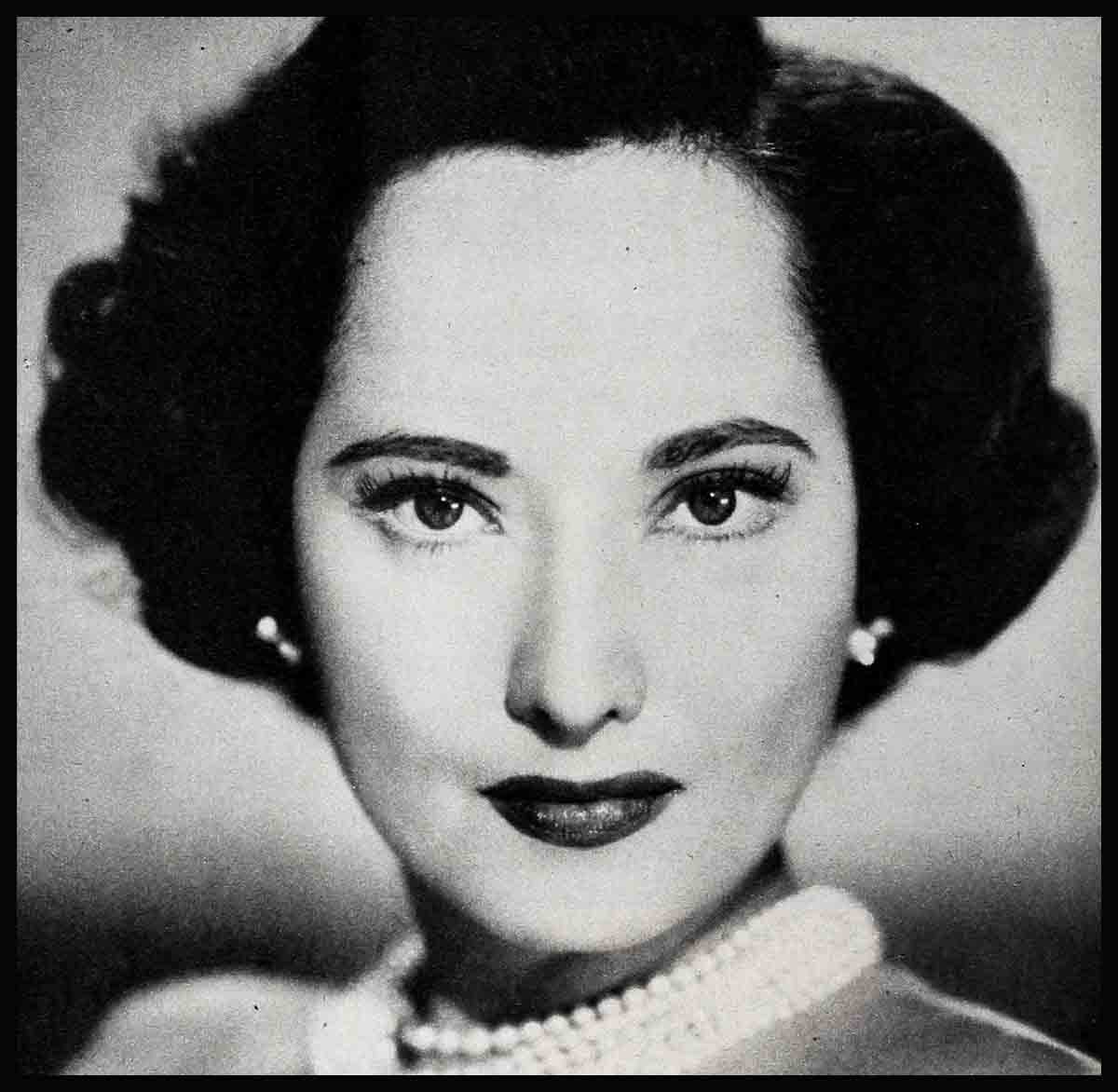
I’ll-fared Love Story—Merle Oberon & Giorgio Cini
The story I am going to relate, a story of great love and greater tragedy, is unlike any I have ever told. It is a story which proves again that if we reach the heights of happiness we must expect to be plunged into the depths of despair. This is the story of Merle Oberon, and no love affair she ever played before the cameras has held such heartbreak.
My story begins in Rome, in the bright setting of international society. As I have told you, my heroine is lovely Merle Oberon. My hero, a brilliant and fatally attractive Count: Giorgio Cini, the son of famous Italian parents. Rich, titled, fascinating, he could choose among women.
Merle and Giorgio met on the isle of Capri at a great dinner party given by the Countess di Frasso. In the moment his eyes found hers, her life belonged to him. “No more beyond thine eyes . . .” That was how it was with Merle from the first. Their madness did not diminish, it grew. I would not say they counted the world well lost, for I do not think they gave the world a thought.
But the world is not so easily left behind. For both Merle and Giorgio had ties not quickly severed. Merle had a husband, Lucien Ballard. Giorgio was married, in deepest secrecy, to Madina Visconti.
I do not presume to judge what right these two people had to each other. None, by any accepted standards of society. It may be that in this very fact lay the roots of their tragedy. I do know that they were blind to all considerations but the insistence of their love for each other.
Merle’s friends tried to show her the wisdom of returning to Hollywood and postponing any divorce proceedings. I have known Merle many years and always recognized in her a practical wisdom. But now, when I saw her, she was so obsessed with her new vision of happiness that nothing else was of the slightest consequence to her.
Merle became more beautiful than I have ever seen her. Yet she never felt beautiful enough for this man to whom she had given her heart. Several times before dinner parties we waited while she dressed, radiant and excited as a debutante preparing for her coming-out ball.
“Do you like my hair as I have done it tonight?” she would ask. “Do you think Giorgio will like it?
“My dress?” And before I could reply, “no,” she would say. “I don’t think Giorgio will like it. I’m going to change.” One night I saw her change six times before she went down to meet Giorgio’s challenging eyes.
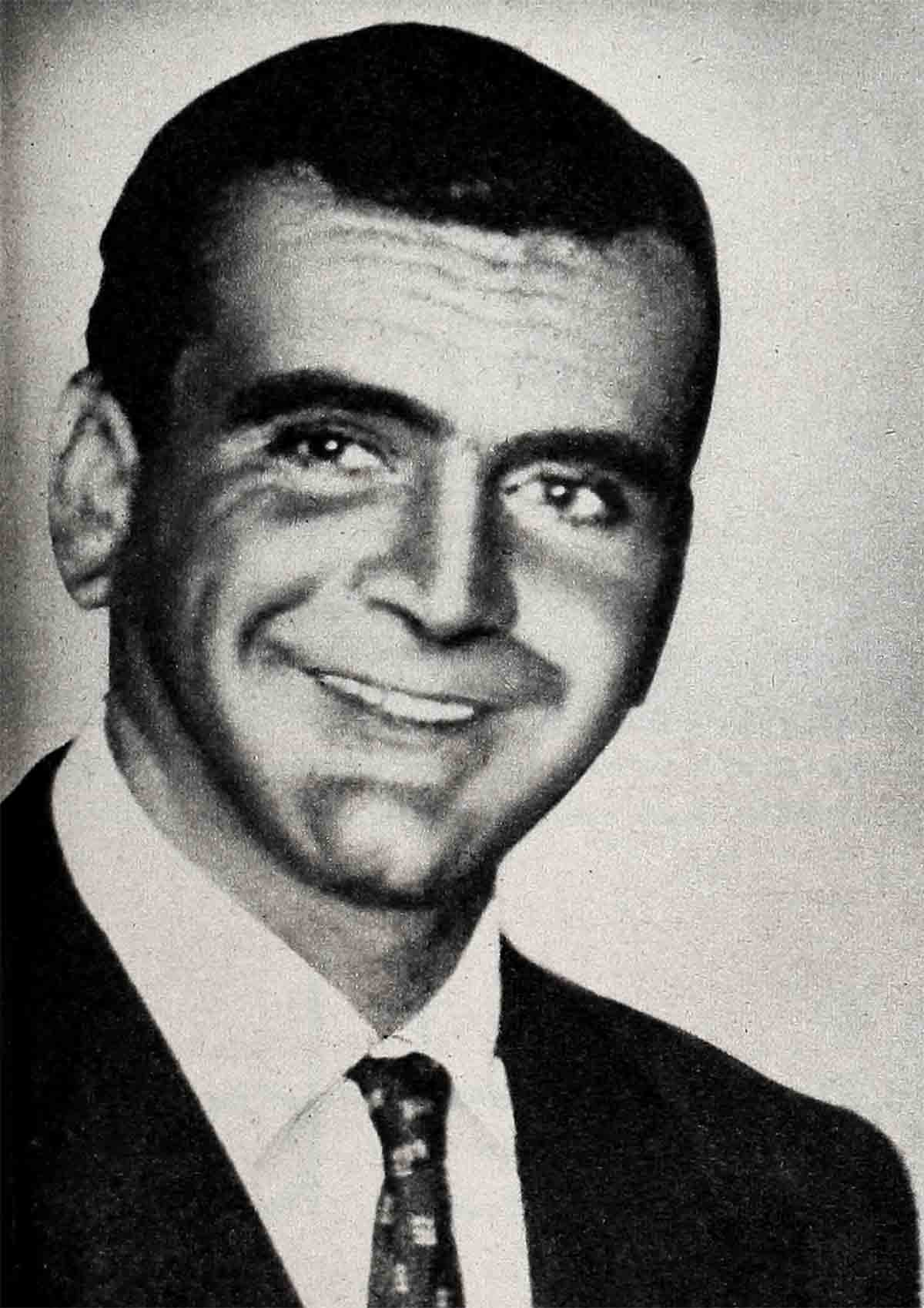
Not only did she dress for him. She breathed for him.
And Giorgio? When Merle had to return to the United States to settle her Hollywood property, he went, too. But they were very discreet, seen little together, and Giorgio appeared in public with other women.
He was not willing openly to humiliate his secret wife, Madina. A year ago, last September, they were both in Venice while I was there. When I asked Madina to dine she asked if Giorgio might come, too.
“Of course, bring Giorgio,” I said. And he came. But he was not happy.
I was not alone in wondering, fearfully, how it all would end. Were not these people sacrificing too much, their careers and the happiness of others, to their love? Some of us kept silent. Others tried to persuade Merle that she should consider her career; go to work in France or Italy, England or Hollywood, get another picture on the screen. It was of no use. There was room in her life only for Giorgio.
And I believe I know why. None of us could foresee how quickly it was drawing to an end, but I feel sure Merle and Giorgio knew.
An old school friend of Giorgio’s has told me that once an astrologer came to their school to cast horoscopes. Giorgio, alone among the students, did not receive his. Some weeks afterwards, this student met the astrologer on the street and asked why Giorgio had not been given his horoscope.
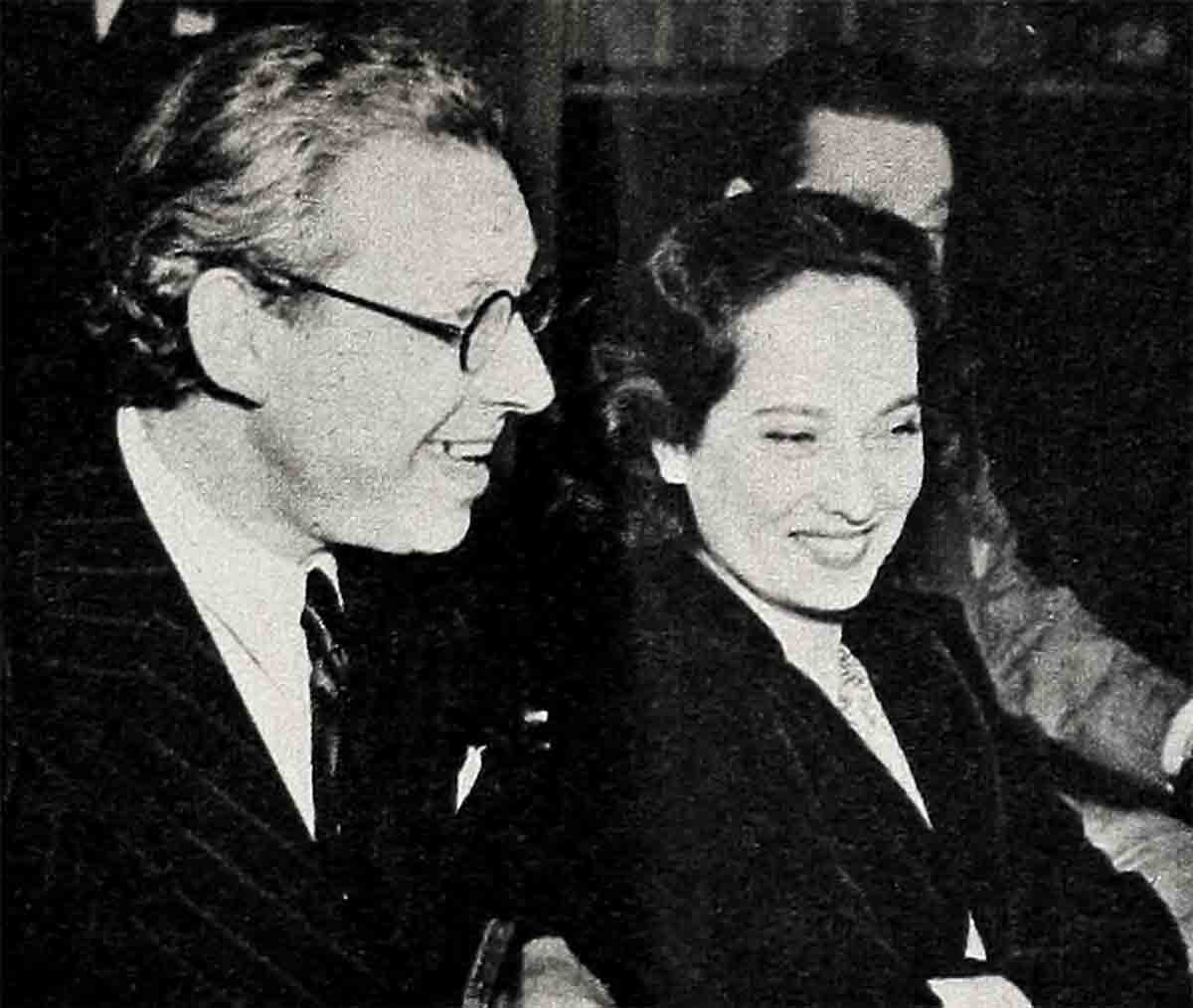
“I do not wish him to know his future,” the man had answered. “In eleven years he will be dead. Why tell him? There is nothing he can do. He will die violently in a car or a plane. It is in his stars.”
It was almost as if Merle sensed that she and Giorgio had not long to be together.
I remember a dinner party the Darryl Zanucks gave last summer at Monte Carlo. Merle, in gold, radiated beauty. She and Giorgio sat holding hands, looking into each other’s eyes. A woman entered wearing strands of pearls and diamonds. There were exclamations from the guests.
But Giorgio whispered, “That woman is nothing, next to you, Merle. You are a jewel more brilliant than all the jewels gathered here together.”
Their love had reached its height.
Shortly after this, Pamela Churchill, then in Monte Carlo, gave a small informal dinner party at the Hotel du Cap.
I heard that a fortuneteller was coming later, a man who felt the future.
I heard then from a friend how his man started to read Giorgio’s hand. For a while he was quiet. Then, quite pale, he stood up. “I prefer not to continue this reading,” he told Giorgio. “Please come into another room. I want to speak with you.”
Giorgio, with an odd smile, followed.
“Do you fly?” the man asked him.
“Frequently,” Giorgio answered. “Tomorrow, at two o’clock, I am flying to Venice.”
“I warn you not to,” the man said.
“A flight to Venice is nothing. An hour and a-half in the air, perhaps. . . .”
“Do not fly,” the man repeated.
Merle, frightened by the fortune teller’s refusal to continue the reading, could bear the suspense no longer. She rushed in, followed by the other guests. “What is it you are saying?” she demanded.
The man looked at her gratefully. “I’m warning Count Cini not to fly,” he said.
Merle grasped Giorgio’s hand. “Don’t fly, please,” she implored him.
“But it is nonsense . . .” he protested.
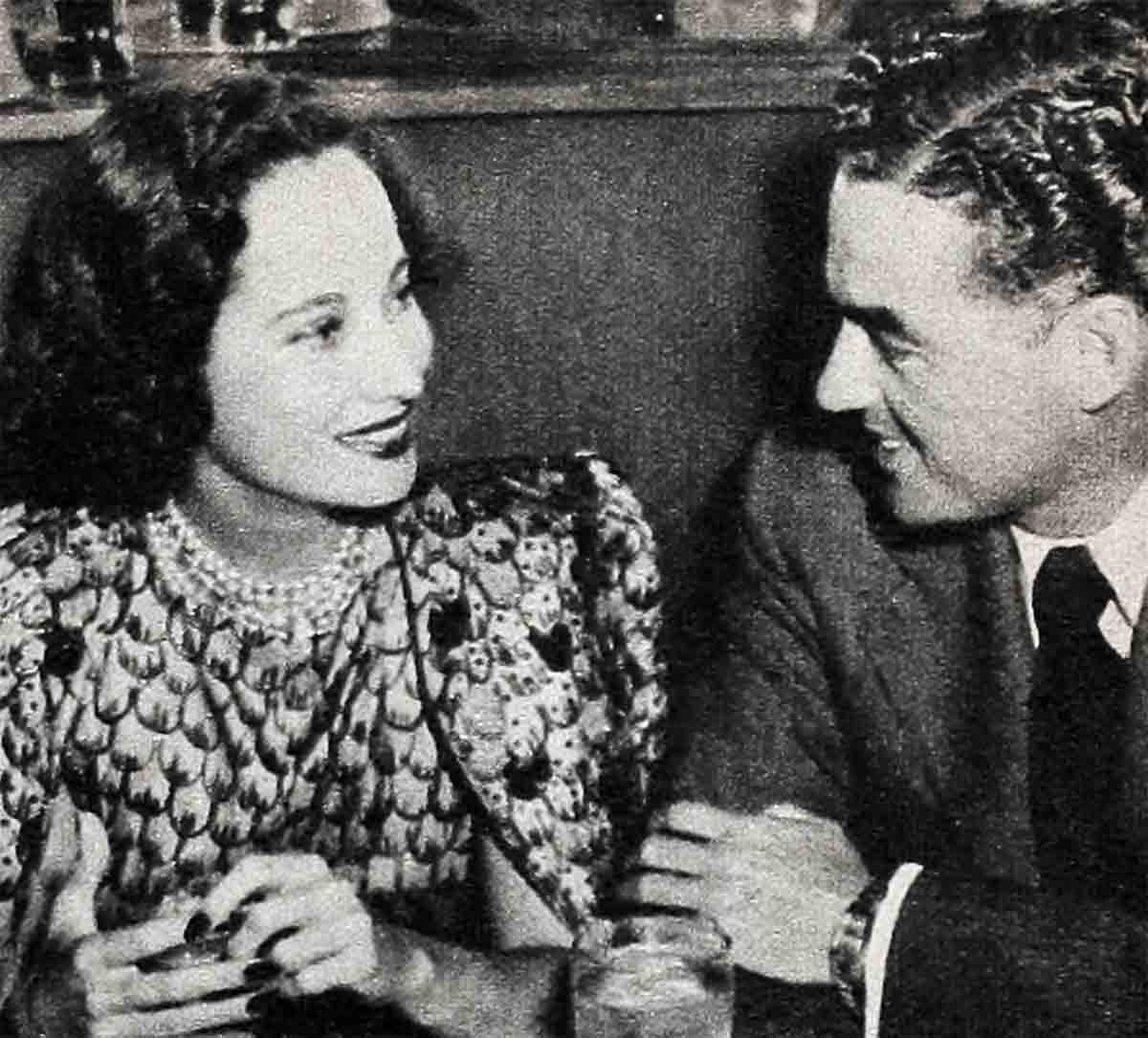
Merle would not give up. She became; almost hysterical before Giorgio agreed to go by train. “One cannot escape one’s fate,” he said. But he agreed.
Early the next morning they drove everywhere along the French coast trying to get reservations. But no train space of any kind was to be had.
Merle begged Giorgio not to go at all.
“I must, darling,” he told her. “I must be in Venice tonight.” He was not to be dissuaded.
At the little airfield near Cannes they lunched, with the pilot of the hired plane. Merle tried to keep back her tears.
As they walked hand in hand to the plane, Giorgio whispered to her, “There is nothing to fear. Always, I will come back. You will see. Even today when I leave we will circle back so that I can wave goodbye again.”
Merle stood on the field, watching, listening to the plane’s engine sputter, catch, roar into flight. A moment more and the plane was off the ground. Merle released her breath, began to move a little, to turn and watch as Giorgio had told her to do. The plane was lifting higher, circling back. Now it was low, flying across the field. She could see Giorgio, throwing her kisses, and tears of relief ran down her cheeks.
In the second that she lowered her eyes, the plane’s engine choked, cut out, raced again. Merle looked up in terror. The plane dipped. A wing hit a tree. And the plane crashed in blinding flames.
Merle fell into the arms of a woman beside her, shielding her eyes from a sight she would never forget. A taxi went screaming down the road for help. An ambulance was racing across the field, men were running out toward the plane, to find there was nothing that could be done. And, at last, there were only a few tiny flames.
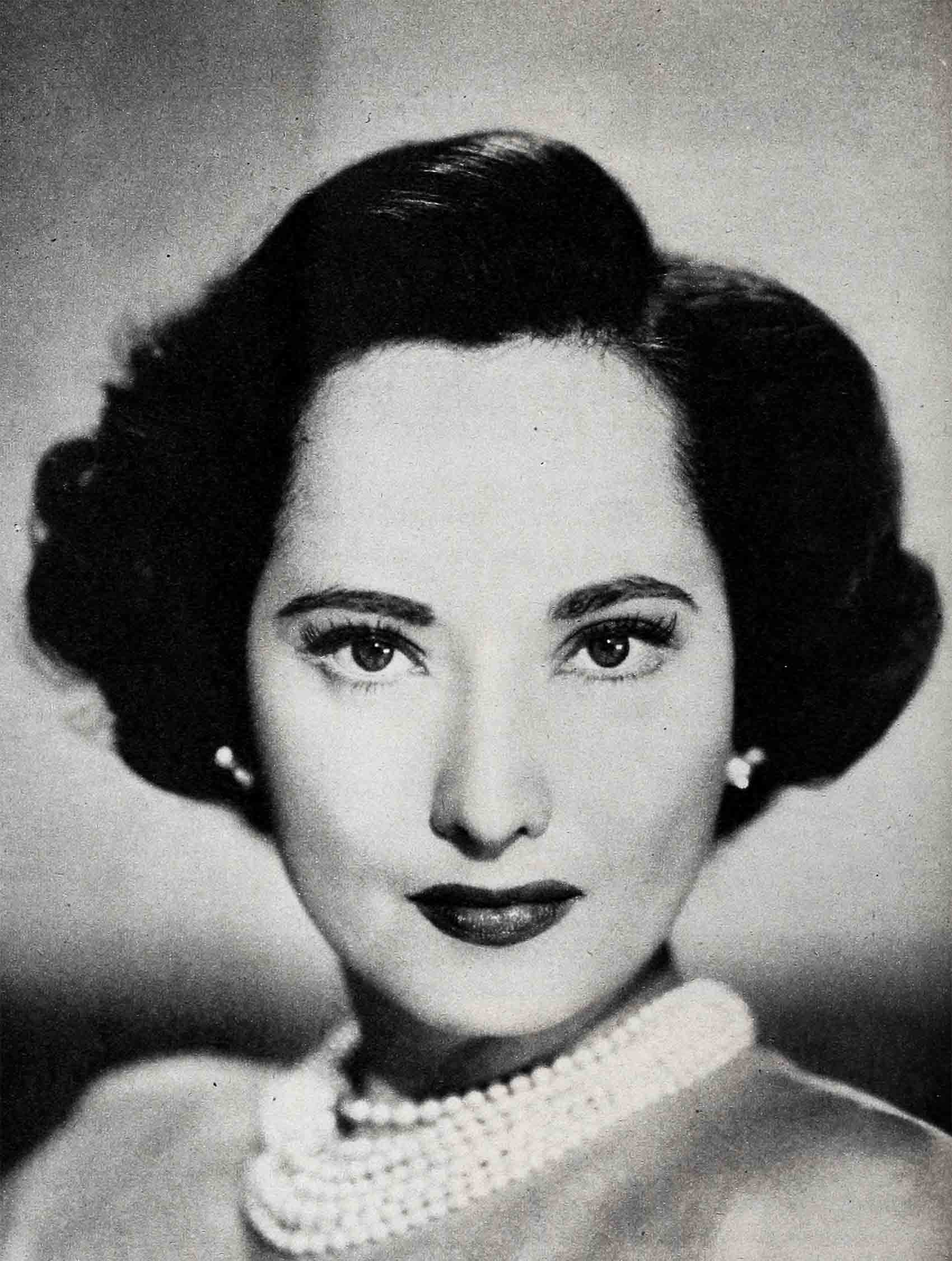
They supported Merle to the airfield’s little lunch bar. There she slumped down at a table, sobbing uncontrollably. No one could find any words of comfort for her. The manager of the Grand Hotel, where she was staying, took her back to the hotel where they quieted her with opiates. But she had to be watched night and day. She was almost mad with grief and it was feared that she might try to end her life.
The newspapers were filled with the story. Giorgio’s marriage to Madina Visconti became public as she and her family went into deep mourning, in Venice. She would, the Italian press reported, be Giorgio’s legal heir and receive that half of the Cini fortune Giorgio’s father had settled upon him.
Merle’s wild grief was followed by an inert despair which was even more tragic. Those who went to see her, trying to bring her back to the world of living, met with failure.
And then Pamela Churchill made a suggestion. She was, she explained, going away on a yachting trip. Her chateau would be empty. She wanted Merle, with her secretary and nurse, to move into it. Merle could lie in the sun in the garden.
Merle agreed with thanks, for it meant an escape from the gaiety and bustle of the great hotel, so jarring to her nerves. Perhaps there she could rest and regain her strength.
But there was to be no rest for Merle. She stayed only a very brief time at the chateau and then, unaccountably, fled to England. It was only the other day that I learned the terrible ending of this tragedy.
A writer friend of mine moved into the chateau after Merle had gone. The night he arrived he was seated at the desk in the study giving directions to the cook. Suddenly, a great bat swooped out of the heavy folds of a curtain.
“It’s back,” the cook cried, gathering her apron about her head in terror.
My friend sat frozen as the bat circled the room and then glided through the door. When it had disappeared, he took a deep breath and said, “It’s gone now. Don’t be frightened.”
The cook looked around, and said,“ Thank God. Bats are evil, an ill omen.”
“It’s been here before?” my friend asked.
“Oh yes,” the cook replied. She shivered.
“I saw it the first day poor Miss Oberon came to stay. It came out at her, from I don’t know where, as she entered the front door. It followed her about like something possessed, pursued her up the stairs.
“It appeared wherever she went. You could hear its eerie whistling sound all over the house. We were terrified. It means evil, I know.”
I, myself, do not know if the bat was an |omen. But I do know that it will be a long |time before Merle finds happiness again—or will it! She sacrificed everything to her love, and when it was taken from her, what had she left? She could not, she found, endure to stay in England. She fled to ‘southern France again, as if she must torment herself with the scenes she shared with Giorgio. Now in Cannes she has finally made another film, “Pardon My French,” with Paul Henreid and a foreign cast. I hope it will be a good one.
As I told you at the beginning of this story, I believe there is a law of balance in this world. Merle attained the heights of happiness and must therefore plumb the depths of despair. I hope that she will find a level plane of normal living now that her tragic love story has reached its close.
THE END
—BY ELSA MAXWELL
It is a quote. PHOTOPLAY MAGAZINE MAY 1950





No Comments